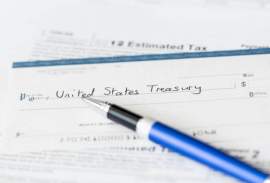
The Taxation of the Self-Employed

The self employment tax applies to those that work for themselves and their income is directly from their own work. The small business tax differs, as self employment is not the same as owning a business. The self employment tax allows for more deductions than for those that work for someone else.
While the small business tax may be applied to an LLC, individuals can be considered self employed if the LLC is not treated as a corporation. In general, the self employment tax applies to individuals that are sole proprietors or independent contractors. These individuals are responsible for income taxes, just as employed individuals would be, but they must also pay Social Security and Medicare taxes because of the Self-Employed Contributions Act.
Normally, working individuals pay these taxes through FICA but self employed individuals are responsible for the full amount of the tax, rather than having an employer that pays half of the tax. The self employment tax is around fifteen percent of the total income, but a portion of that tax is subtracted from the taxable income.
The total tax burden for the self employment tax is around twelve percent for Social Security, with the remainder going to Medicare. The amount that an individual can collect at retirement, is directly correlated with the amount of self employment or FICA taxes paid during their lifetime.
NEXT: The Truth About Alternative Minimum Tax





















